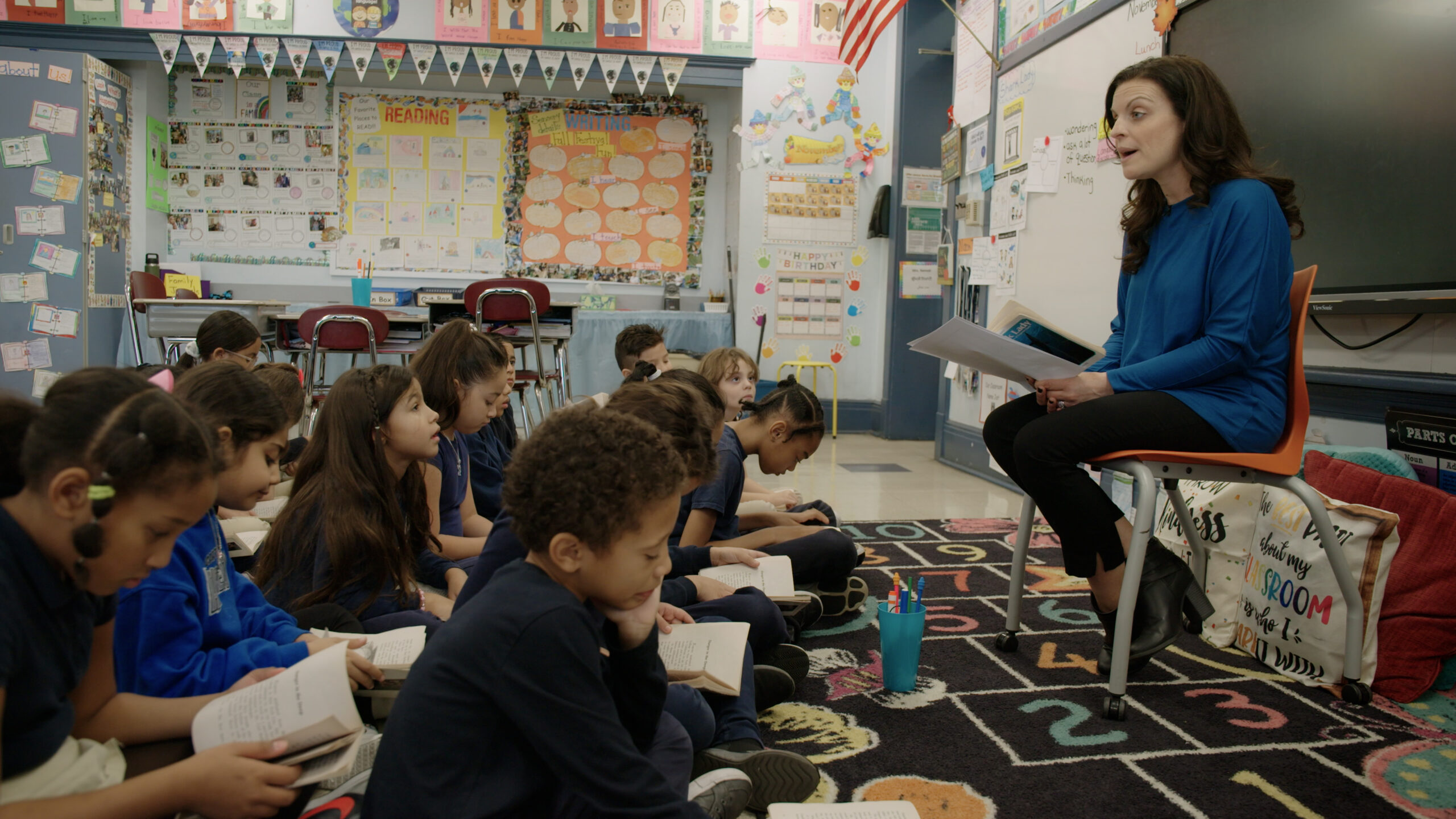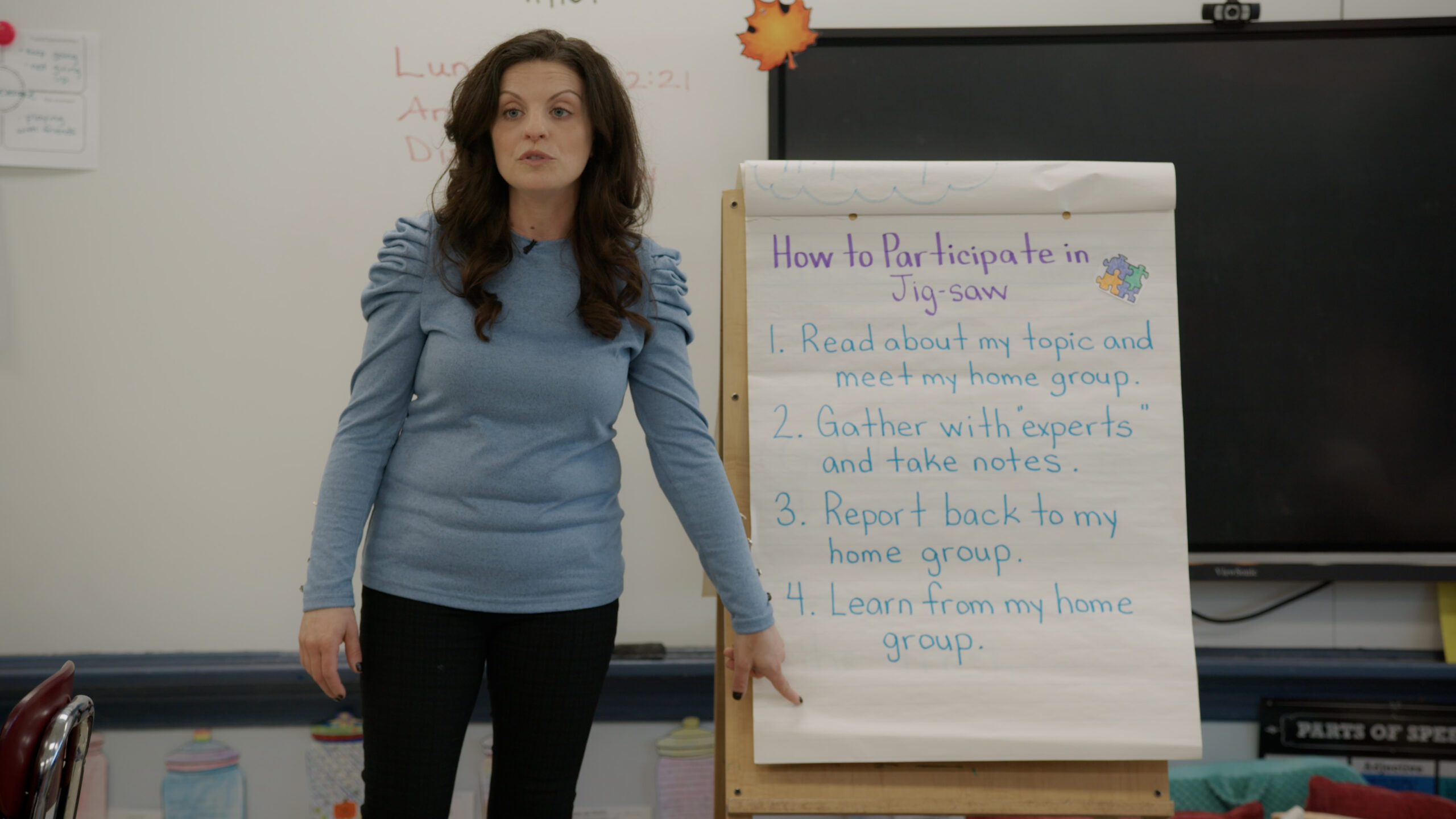Using Questioning to Support Comprehension
Overview
In this video, the teacher works with a small group of students to practice using questioning using visual sentence starters. The students practice asking questions out loud to the group as they review a familiar text, a picture book version of a class-read chapter book. The teacher reinforces how asking questions aids in deepening understanding of the story and uses a puppet to spark engagement and make thinking visible during the lesson.
Key Take-aways
•Focus less on teaching about the strategy itself and more on practicing using a variety of strategies to understand the content of the text.
•Practice applying strategies with relevant texts in alignment with current themes or topics to support systematic vocabulary acquisition and building comprehension.
Transcript
Dr. Ken Kunz: In this session, we’re not just throwing out strategies randomly.We’re taking you on a strategic journey. Our goal is to showcase comprehension strategies one at a time, introducing them in a logical sequence and connecting each to relevant texts. No more isolated learning with random text samples. Join us as students discuss the core strategies of predicting, questioning, clarifying, and summarizing. Today we learned about the power of think-alouds.
Teacher: Today we’re going to learn about the fantastic four. Can you show me?
Student(s): Fantastic four.
Teacher: Good job.
Student(s): And they are predict, question, clarify, and summarize.
Teacher: We’re going to use our picture book of Shark Lady and our friend Quinto the questioner, and we are going to practice questions, right? So I wonder who, I wonder when. I wonder where. I wonder what, and I wonder how. Does anybody have any questions about our picture of Shark Lady. Bella?
Student(s): How did she become a scientist after?
Teacher: How did she become a scientist after all her schooling? Right. Okay. Excellent question. What’s your question?
Student(s): I have a question. Why did she have… why did she have a lot of perseverance to do all these stuff?
Teacher: How about we say, how did she have so much perseverance to become a scientist and do all of those hard things? Right. If we made predictions before we started reading, maybe we could say, um, I wonder how she swims with, she swam with the sharks, right? But because we already read this book, we can ask how did she have so much perseverance to swim with sharks? Any questions about anything happening nside of our book? I’m, go ahead. Emmanuelle.
Student(s): Why did he say that girls cannot do things like that?
Teacher: Very nice. So, in our picture book, one of Eugenie’s teachers told her that girls could never swim with sharks. So, Emmanuelle is asking why did her teacher tell her that? Okay. Very good question. Did you remember yours, Bella?
Student(s): How did the fish inspire her?
Teacher: Oh, I’m kind of wondering that too. How did fish in an aquarium inspire her to want to swim with sharks? That’s an excellent question. Hey, Jayden, do you have any more questions? What is it?
Student(s): Why does she want to study for the…Why does she want to study sharks?
Teacher: Why would she want to study sharks? Or why would she want to swim with the Sharks? That’s a good question.
Student(s): That is a good question.
Teacher: That is right. Did we learn that from our picture book?
Student(s): No.
Teacher: Did we learn the reason why she wants to study sharks?
Student(s): I think we learned it in the chapter book too.
Teacher: Yeah, we’re learning it in the chapter book. Okay. So today when you’re finding your question in our book, you are going to use the sentence starter. I wonder who? I wonder where. I wonder when. I wonder what, or I wonder how, before you ask your question about your book. Okay. Okay. Bella, would you like to share your question?
Student(s): I wonder how did Dr. Eugenie Clark train the shark?
Student(s): I wonder where she… where she was training the sharks at?
Student(s): Why did she say that she’s going to prove everybody wrong?
Teacher: Oh, very good question. Why does she say in the book she’s going to prove everybody wrong? I wonder why, too. Excellent. Can I have the puppet back? Think-alouds and are fantastic four, they are great strategies to help you understand your text.
Dr. Ken Kunz: Students use a hand puppet to make their thinking visible and all students have a voice in the lesson. Many students need multiple exposures to strategies, but some strategies also have a bigger bang for the buck.


